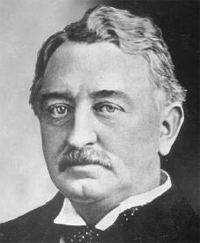
ZANU PF youths in Bulawayo have been blocked from exhuming the remains of Zimbabwe’s colonial master, Cecil John Rhodes, from Matopos National Park in Matabeleland South because this will hurt tourism.
NQOBANI NDLOVU STAFF REPORTER
The youths were pushing for Rhodes’ grave in the Matopo Hills to be dug up, in solidarity with University of Cape Town students who want the statue of the British imperialist to be removed from the institution.
Sources told Southern Eye that State security agents told the Zanu PF youths during a meeting held at the party’s Davis Hall offices yesterday to abort their plans, as it was not beneficial to anyone, but would just hurt tourism.
“We are no longer going ahead with plans to exhume his grave,” a party youth said on condition of anonymity.
“We were made to understand that this move was not beneficial at a time when the government is busy promoting tourism.”
Speculation was rife before the meeting that the youths would get the go-ahead to dig up Rhodes’ grave, a popular sentiment for some Zanu PF supporters.
Zanu PF activist and former commissar for Masotsha Ndlovu district, Zweli Malinga, had argued at the weekend that Rhodes’ grave was a symbol of celebrating white colonialism and “we cannot stand seeing whites coming from abroad every day to honour and conduct rituals before their ancestor who is here buried on our own land”.
- Chamisa under fire over US$120K donation
- Mavhunga puts DeMbare into Chibuku quarterfinals
- Pension funds bet on Cabora Bassa oilfields
- Councils defy govt fire tender directive
Keep Reading

Malinga could not be reached for comment yesterday.
In 2012, the government blocked plans by war veterans to exhume Rhodes’ grave and return his remains to the United Kingdom, saying his legacy was part of the national history.
The war vets blamed drought and the dry spell in some parts of the country on Rhodes’ grave, saying if his bones were returned, the country’s fortunes could change.
Cain Mathema, then Bulawayo governor and now Matabeleland North Provincial Affairs minister, supported this argument, saying Rhodes’ remains were to blame for the lack of rains in Matobo.
Mathema at the time wanted the Victoria Falls name changed to its original Tonga language, Mosi oa Tunya which means the “smoke that thunders”, and Christian explorer, David Livingstone’s statue overlooking the falls to be replaced by one of President Robert Mugabe.
In the early 2000s, an activist group known as Sangano Munhumutapa vigorously campaigned to have Rhodes’ grave dug up and his bones to be thrown into the Zambezi River.
In neighbouring South Africa, reports say University of Cape Town students staged protests last week demanding the removal of Rhodes’ statue from the campus, saying it symbolised white racism and celebrated apartheid.
Rhodes, an architect of colonisation in several African countries, made his fortune in South Africa’s diamond mines before moving north to establish Rhodesia.
He died in 1902 in Cape Town but was buried in Matopo.










